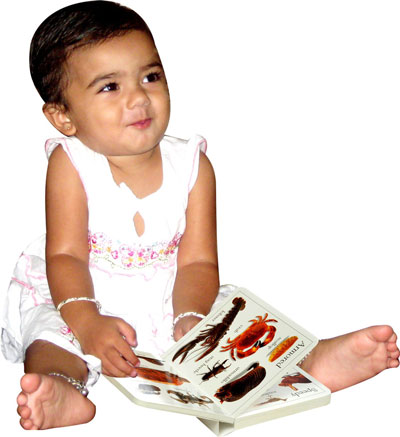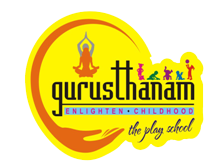Try At Home
Dear Parents,
These are some daily and varied activities at Gurusthanam Playschools that you can do for your child at home that would improve their social and cognitive skills:
Daily Nursery Activities
Emotions.
When serving dinner to your child, make a comment about how he/she will feel about eating the food. For example, “I bet you’re happy that there are no sprouts tonight!”
Pretend Play:
Experiences.
Give your child opportunities to draw on her previous experiences during our daily playschool activities such as pretend play. For example, play “school” together, and pretend to be the child while your child is the teacher.
Reading Books
Explain.
Go beyond the hear-and-know by explaining the reason for an event in the story. An example of this playschool activity is, “The Big Bad Wolf couldn’t blow down the Third Little Pig’s house because it was made of… On the Go
Evaluate.
At this nursery activity, you will ask your child to evaluate the things she sees. While out for a walk in the park, ask, “Do you think it’s a good idea to keep dogs on a leash.
Household Chores
Teaching your young children to grow towards independence begins at a young age. Teaching self-help skills is where it begins. At this playschool activity, you need to guide your child to learn to feed themselves with their fingers… read more…..
Teaching your young children to grow towards independence begins at a young age. Teaching self-help skills is where it begins. At this nursery activity, you need to guide your child to learn to feed themselves with their fingers and then to lift a cup and tip it just right so they can drink the liquid. Next comes using spoons and forks independently, washing their hands, doing some of the tooth brushing (mom or dad finish), undressing and dressing and eventually using the toilet by themselves. Another part of daily routines includes teaching your child to do chores such as clean up their toys, help set and clear the table (napkins and utensils are a good place to start), put their dirty clothes in the hamper, put their outer clothing on hooks or in bins, folding/matching socks from the laundry, maybe even wiping off the table when they are tall enough to reach. When adding responsibilities here are some things to remember:
‣ make sure your directions are clear
‣ when you say “clean up” make sure they know what that means (e.g. put the toys in bins, make sure the whole floor is clear)
‣ have routines to support what you are teaching them (try to have the task happen at the same time each day)
‣ think about your child’s age and abilities and match your expectations to that (don’t expect them to stick with a chore very long…)
‣ guide them physically until they have the physical skill to complete the task
‣ when things are too hard for them, let them try and then assist them in the hard parts
‣ break new tasks down into steps and teach each step
‣ when they don’t want to do a chore, make it fun by singing a song while you do it…see if they can finish before the song is done…or do the non-preferred chores before the fun ones (as adults we do that all the time for ourselves)
‣ praise, praise, praise…let them know when they are making good effort!

